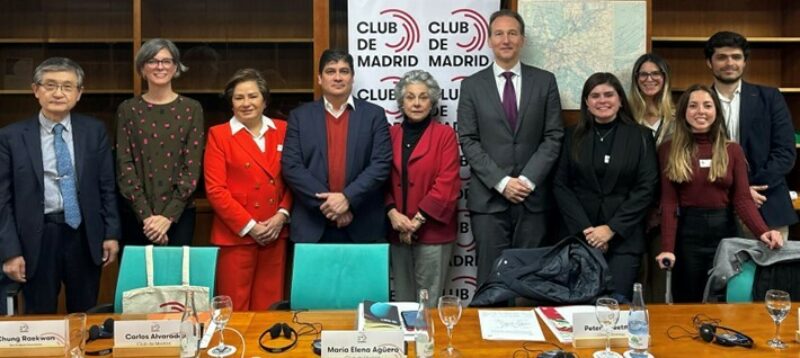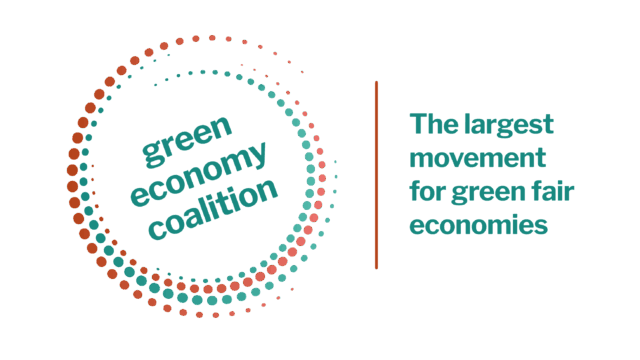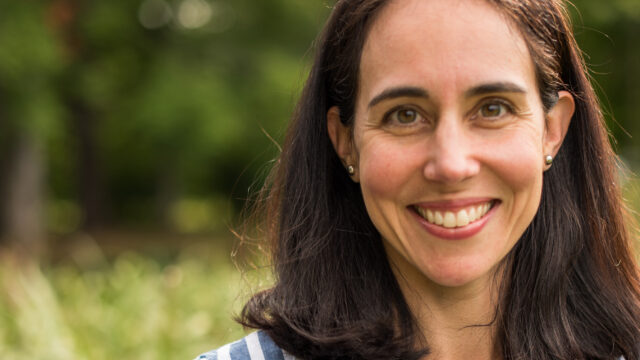Under pressure: net zero and sustainable development
Two new reports - one from the UN, one from the Club de Madrid - highlight the challenges and changes needed for a fair and green future

A new UN report, published this week, sheds light on the urgent need for a substantial increase in financing and a reform of the international financial system to rescue the Sustainable Development Goals (SDGs) from potential failure.
The 2024 Financing for Sustainable Development Report is unsparing in its analysis: the world faces a colossal financing gap, now estimated at a USD 4.2 trillion annually, which is having disastrous consequences for progress on healthcare, education, access to energy and poverty eradication, particularly in the poorest countries. This gap is being further widened by the impacts of the COVID-19 pandemic, climate change, environmental degradation, and rising global tensions.
Unless this financing gap is closed, the report warns that the SDGs will remain out of reach, leaving millions in poverty, particularly in vulnerable countries and communities worldwide. Less than six years remain to find the missing money, but despite billions lost to tax evasion and trillions in fossil fuel subsidies, there is a blatant lack of political will and commitment to address the issue.
The report calls for a comprehensive reform of the international financial system, urging global cooperation, targeted financing, and political will to steer the world back on course towards sustainable development. It identifies the upcoming Fourth International Conference on Financing for Development (FfD4) to be held in Spain in 2025 as a critical juncture for countries to commit to closing the financing gap and investing in the SDGs.
Earth, is it really dying?
And among all these interrelated crisis, there is one that stands out as imperative for our collective future: addressing climate change. Progress towards limiting global temperature rise has been sluggish, posing severe threats to our planet's stability and the wellbeing of humanity. Achieving net-zero requires not only robust policies, finance and technology but also strong partnerships and inclusive leadership.
Moreover, the journey towards a net zero future must prioritize equity and justice, seizing the opportunity to uplift communities and foster sustainable development for all. That's where activities like the Club de Madrid Leadership for Net Zero Initiative come into play. The Initiative convened three Working Groups led by distinguished figures from political, business, and civil society sectors, including Prime Minister Han Seung-Soo of South Korea, President Jorge Quiroga of Bolivia, President Felipe Calderón of Mexico, and President Carlos Alvarado of Costa Rica.
“ The report is not a final destination, but one more step on the way to net-zero. The clock is ticking, and the choices we make today will shape the world for generations to come.”
I am deeply honored to have contributed to the Leadership for Net Zero Initiative and to have played a role in drafting the concluding report. The report summarizes the key recommendations detailed in each Working Group’s final position paper, which I highly encourage you to explore—they are truly excellent resources (maybe you feel like listening to David Bowie while reading). At the core of the recommendations lies a commitment to prioritize the well-being of both people and the planet, fostering a resilient, fair, and inclusive economy. By embracing new and improved global governance structures and eco-social contracts, the report lay the groundwork for guiding our collective efforts towards a brighter tomorrow.
Five years, that’s all we’ve got…
Through dialogue, collaboration, and a shared commitment to equity and solidarity, the Initiative charts a course towards net-zero. From political leaders paving the way for climate action to businesses embracing innovation and sustainability, and from civil society advocating for systemic change to citizens demanding accountability — each stakeholder has a crucial role to play in this common transformative journey.
The report is not a final destination, but one more step on the way to net-zero. The clock is ticking, and the choices we make today will shape the world for generations to come. Let us heed the call of the Club de Madrid Leadership for Net-zero Initiative, the UN report and others, and mobilize leadership and financing, and work together to ensure that no one is left behind on the path to a more equitable and sustainable world.
The man who sold the world
At the Green Economy Coalition, we are ready to take on the challenge of transforming our world for the better and to advocate the recommendations outlined in the Club de Madrid Leadership for net-zero report. Through our latest Green Economy Barometer we have also identified priority areas that demand our attention and action. Together with our network and national hubs, our global policy work at GEC is dedicated to enabling this transformation. From empowering green and fair small businesses, to advocating for circular economy practices and shaping a new global green economy architecture, we are committed to driving change at every level.

Our current system is inadequate to address the urgent environmental and social challenges we face. That is why we are calling for a reset—a renegotiation of existing social contracts and the establishment of new eco-social contracts that prioritize sustainability and equity.
As we look ahead to 2024 and 2025, we have identified key events and initiatives where we can collaborate with partners like the UN Summit of the Future (see here our comments to the draft Pact), Brazil’s G20 Presidency, the Fifth Global Conference on Strengthening Synergies between the Paris Agreement and the 2030 Agenda for Sustainable Development, COP29, FfD4, COP30, South Africa’s G20 Presidency, or the World Bank Group Annual meetings. In just a few weeks, GEC will be at the UN Civil Society Conference in Nairobi, Kenya.
Together, let's seize these opportunities to forge a path towards a brighter and more sustainable future for all. Please do get in touch and join us in this crucial journey!
- Sofía Martínez, GEC


